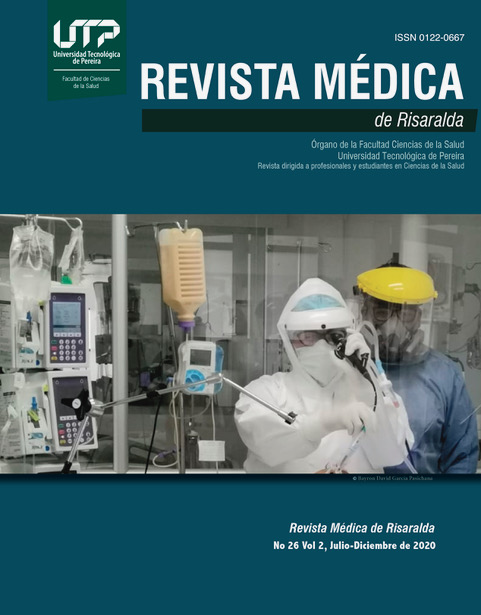Diabetes mellitus association with chronic use of atypical antipsychotics
DOI:
https://doi.org/10.22517/25395203.24439Keywords:
Antipsychotic agents, type 2 diabetes mellitus, ; long term adverse effects, Drug-Related Side Effects and Adverse ReactionsAbstract
Abstract Antipsychotic agents are currently considered as the main pharmacological treatment that helps the maintenance management of acute schizophrenia and other mental disorders. These drugs are classified into two groups: First-generation antipsychotics (FGAs) or typical antipsychotics, and Second-generation antipsychotics (SGAs) also known as atypical antipsychotics (AAP). In relation to the use of typical antipsychotics, some relevant adverse effects have been described, especially in terms of extrapyramidal side effects (EPS), which has downgraded their use and encourages the treatment of atypical antipsychotics (AAP) due to the adequate clinical effectiveness demonstrated so far in the practice. However, these drugs have been associated with different metabolic alterations such as the increased risk of suffering from diabetes; thus, several etiopathogenic mechanisms have been proposed. In this narrative review, we seek to present an updated summary of the literature of the last five years about the use of atypical antipsychotics and type 2 diabetes mellitus. Here it has been emphasized the different hypotheses reported so far that involve weight gain and different effects mediated by hormones, neurotransmitter receptors, and neuropeptides that impact on the genesis of hyperglycemia and insulin resistance states.
Downloads
Downloads
-
Vistas(Views): 982
- PDF (Español (España)) Descargas(Downloads): 822
Published
How to Cite
Issue
Section
License
Cesión de derechos y tratamiento de datos
La aceptación de un artículo para su publicación en la Revista Médica de Risaralda implica la cesión de los derechos de impresión y reproducción, por cualquier forma y medio, del autor a favor de Facultad de Ciencias de la Salud de la Universidad Tecnológica de Pereira. 1995-2018. Todos los derechos reservados ®
por parte de los autores para obtener el permiso de reproducción de sus contribuciones. La reproducción total o parcial de los trabajos aparecidos en la Revista Médica de Risaralda, debe hacerse citando la procedencia, en caso contrario, se viola los derechos reservados.
Asimismo, se entiende que los conceptos y opiniones expresados en cada trabajo son de la exclusiva responsabilidad del autor, sin responsabilizarse ni solidarizarse, necesariamente, ni la redacción, ni la editorial.
Es responsabilidad de los autores poder proporcionar a los lectores interesados copias de los datos en bruto, manuales de procedimiento, puntuaciones y, en general, material experimental relevante.
Asimismo, la Dirección de la revista garantiza el adecuado tratamiento de los datos de carácter personal



